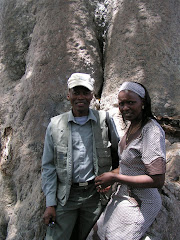In Botswana, gender-based violence takes many forms including emotional and physical abuse, economic deprivation, rape and recently passion killings. Sexual abuse, rape and incest often go unreported and if reported, the cases are withdrawn due to lack of a supportive environment to follow the case through and/or lack of financial resources to secure legal representation. The Children’s Act of 2009 provides for a strengthened legal and policy environment to bolster the protection measures that exist under Botswana law while providing provisions to fill in the gaps that in the past infringed on the child’s right to full protection
UNICEF aims to support the Government of Botswana (GoB) in improving its upstream mechanisms, norms and standards that will ensure continued coverage and strengthened quality and equity of access to justice for children in conflict with the law in Botswana. Since 2005, UNICEF has worked with GoB in reforming protective systems for children and women in a comprehensive manner. This approach emerges out of a strategy to enhance protection for all Batswana children through knowledge, information and the right to protection from abuse and exploitation and to create space for children to participate in the protection of their own rights. Specifically, GoB and UNICEF will address the legal environment in which children must seek legal protection and remedial measures when various forms of exploitation whether as a victim, witness and/or offender.
Victims of crime can be persons who are either younger than the age of 18 or those who are older than 18years. Vulnerable victims are all victims under 17 years old or whose quality of evidence is likely to be reduced because they have mental disorder or learning or a physical disability or disorder. Intimidated victims are victims whose quality of evidence is likely to be reduced because they are in fear or distress about giving evidence.
Botswana acceded to the United Nations Convention on the Rights of the Child (CRC) in March 1995. The Committee on the Rights of the Child in its most recent report for Botswana (2004) noted with deep concern in paragraph 60 that “the juvenile system is not yet compatible with the provisions and principles of the Convention.” The Committee recommended that Botswana “ensure the full implementation of juvenile justice standards and in particular articles 37, 39 and 40 of the Convention, as well the United Nations Standard Minimum Rules for the Administration of Juvenile Justice (the Beijing Rules) and the United Nations Guidelines for the Prevention of Juvenile Delinquency (the Riyadh Guidelines), and in the light of the Committee's 1995 discussion day on the administration of juvenile justice.” Thus, the GoB and UNICEF are collaborating to address the broad range of legal and social issues experienced by Batswana children in contact with the law, as well as the channels and mechanisms by which children must have their cases adjudicated in the Botswana justice system.
Subscribe to:
Post Comments (Atom)











No comments:
Post a Comment